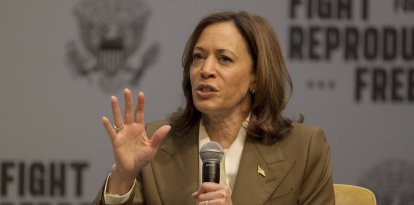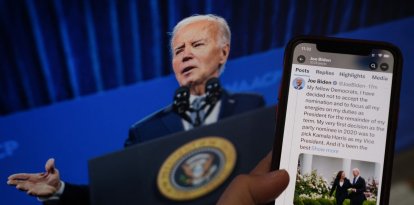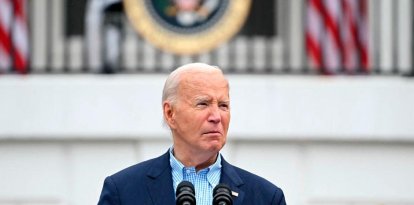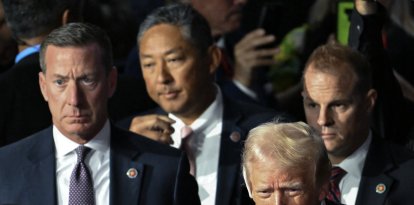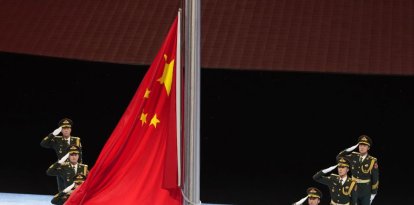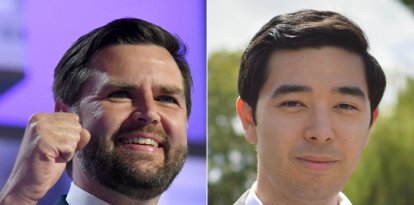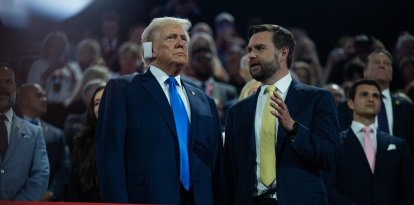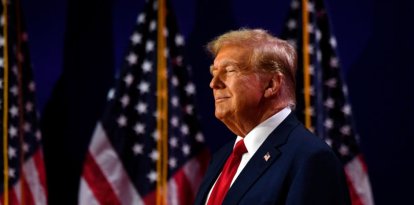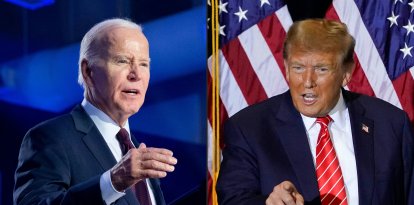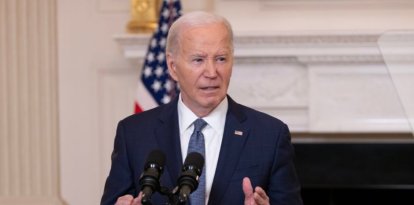Berkeley Clubs Ban Zionist Speakers
Imagine if a university club were to exclude all speakers who support Black Lives Matter?
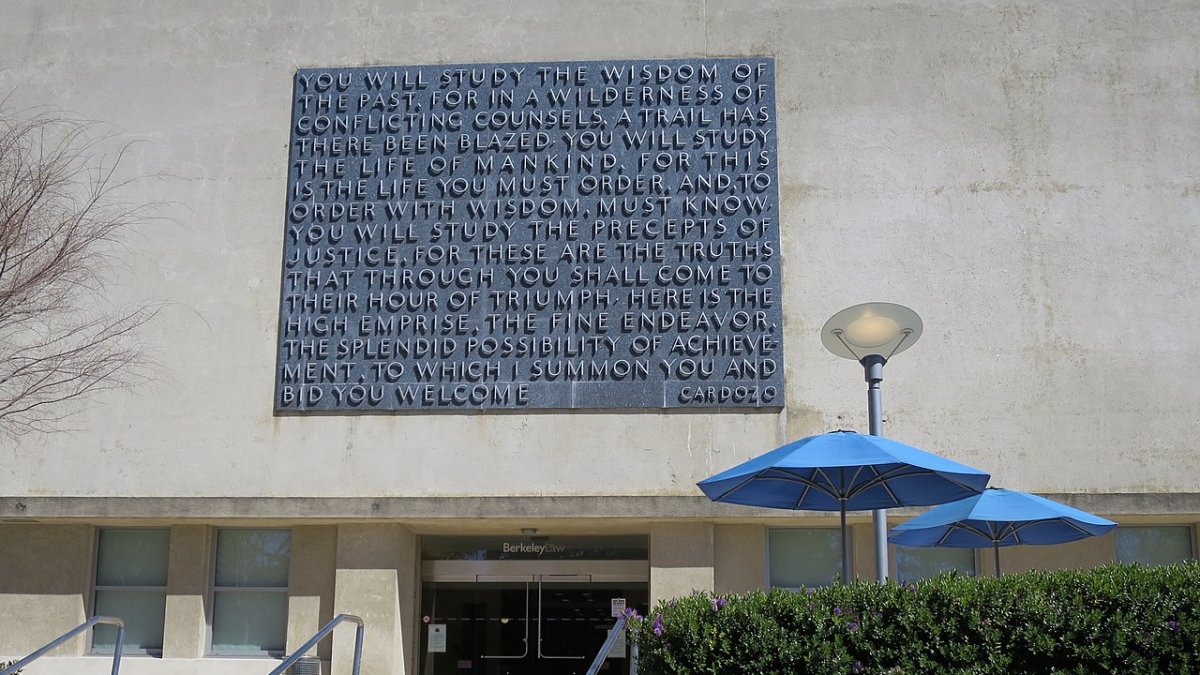
UC Berkeley Law School / Wikipedia.
Do clubs officially sponsored by the University of California at Berkeley School of Law have "Zionist-free zones," reminiscent of the early 20th century signs that reportedly said, "No Jews or dogs allowed"? Or are these clubs merely exercising their First Amendment rights by banning all Zionist speakers and only Zionist speakers? This is the question that is roiling not only the UC Berkeley campus, but campuses all across the country that see the answer setting a precedent for them.
Let us begin with the undisputed facts.
These clubs have amended their charters to disallow all Zionist speakers –even if they also support Palestinian rights and other progressive causes– and even if they intend to speak on a subject unrelated to Israel. If they are Zionists, they are not welcome to speak at these clubs about anything!
The alleged justification for this total ban on all Zionists –that is, people who believe that Israel has a right to exist– is to protect the safety and welfare of Palestinian students. This is patent nonsense. No students have been physically threatened by Zionists, and no student is entitled to be protected from ideas.
These clubs include the Berkeley Law Muslim Student Association, Middle Eastern and North African Law Students Association, Women of Color Collective, Asian Pacific American Law Students Association, Queer Caucus, Community Defense Project, Women of Berkeley Law and Law Students of African Descent.
In other words, even Muslims, gays, feminists and supporters of progressive causes seem to be excluded if they also believe Israel has the right to exist. By excluding ALL Zionists, the ban seems to cover Jews who favor a two-state solution, a return to the 1967 lines and a right of return for all Palestinians.
Those clubs are engaging in a combination of Stalinism and antisemitism: Stalinism in the sense that they allow no dissenting views from their "politically correct" doctrine of no Israel; antisemitism in the sense that among all the nations of the world which are involved in controversies –Russia, Iran, China, Belarus, to name a few–, they have singled out for banning only the nation-state of the Jewish people.
Imagine if a university club were to exclude all speakers who support Black Lives Matter? The current ban is even worse because it seems to ban all Zionist speakers –regardless of their views– from organizations that have nothing to do with Israel. A Jewish feminist could not speak to the women of UC Berkeley about abortion if it were discovered that she is a Zionist. That is pure bigotry.
Universities have an educational and moral duty to foster dialogue and learning, not banning and censorship. Public universities have a constitutional obligation to prohibit religious and ethnic discrimination. Berkeley is failing both tests.
The University of California at Berkeley is a public institution. If it in any way supports these organizations –financially or by allowing them to have offices on the campus–, then it is effectively the State of California that is enacting and enforcing these bans. This constitutes state action and is governed by the First Amendment. The question is which way the First Amendment cuts. Does it give the clubs the right to exclude all speakers who are Zionists? Or does it prohibit state actors from demanding that all speakers disavow Zionism as a condition to exercising their First Amendment right to speak? And what about the rights of their potential audience members to hear them? The answers may also implicate federal funding for the university.
Clubs and universities generally have a right to choose their speakers, but there is a vast difference between individually deciding who will speak and making a collective decision banning all people of a particular ideology, religion or race. This is particularly so when the ideology serves as a mask for antisemitism. Not all Jews are Zionists. Not all support Israel. Many, including me, disagree with some of Israel's policies, just as I disagree with some policies of every country, including the United States. Not all African Americans support Black Lives Matter, but enough do so that such a ban would constitute racial discrimination, just as a ban on all Zionists constitutes antisemitism.
These clubs are effectively banning most Jews. The dean of UC Berkeley School of Law implicitly made this point when he said that 90% of Berkeley's Jews, including him, would be banned by such a policy. This is discrimination pure and simple. The dean also said that he would discipline any club that actually discriminated on religious or "viewpoint" grounds. I hereby volunteer to present the case for Israel -- or for gay marriage -- at any or all of these clubs. It will be interesting to see if they exclude me -- a proud, if sometimes critical , Jewish Zionist.
Although the current ban is only for speakers, its logic –protecting the safety of Palestinian students– would extend to membership, even presence, at these clubs.
The dean also said that school policy prohibits discrimination in membership based on religion or point of view. This would seem to conflict with the "safety" rationale for the ban.
The ban is, sadly, also akin to a loyalty oath of the kind imposed by McCarthyites in the 1950s and opposed back then by both liberals and civil libertarians. Today's liberals and civil libertarians should also strongly oppose these ideological tests as well. But because they come from the intersectionalist left, many are silent, while others are complicit.
Kudos to the dean for condemning this bigotry, even while he defends their constitutional right to practice it. I have offered to publicly debate or discuss our different views of how the First Amendment impacts this ban.
Universities have an educational and moral duty to foster dialogue and learning, not banning and censorship. Public universities have a constitutional obligation to prohibit religious and ethnic discrimination. Berkeley is failing both tests.
The question remains: is their failure protected or prohibited by the First Amendment?













